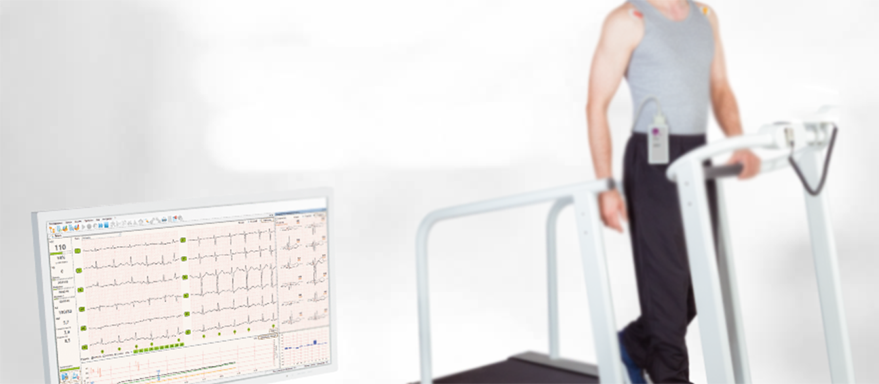DETAILS
ECG (Electrocardiography)

Electrocardiography is the process of producing an electrocardiogram ECG or EKG. It is a graph of voltage versus time of the electrical activity of the heart, using electrodes placed on the skin.
These electrodes detect the small electrical changes that are a consequence of cardiac muscle depolarization followed by repolarization during each cardiac cycle (heartbeat). Liv family has brought continued innovation to diagnostic cardiology solutions over the years. Today, our commitment to improving ECG analysis and developing new solutions is stronger than ever. Whether you are performing a resting, stress or Holter cardiac examination, our extensive cardiology portfolio offers solutions that help meet your needs for precise diagnosis and cardiology data management. Liv ECG system helps enable clinical excellence with outstanding data quality and accuracy in an easy-to-use system
Features:
- hiddenUser friendly
- hiddenLight weight
- hiddenAccurate noise-free results
- hiddenHigh quality wireless amplifier
- hiddenIdeal for clinical and research usage
- hiddenPatient comfort
- hiddenOperation on full charge(24 hours)
- hiddenExercise testing
- hiddenAmbulatory ECG
- hiddenStress testing
- hiddenResting
- hiddenFlexibility for the doctor
Electrocardiography (ECG) is a non-invasive diagnostic technique used to record and analyze the electrical activity of the heart. It involves placing electrodes on the skin to detect and measure the electrical signals generated by the heart during each heartbeat. ECG is a widely used tool in cardiology and healthcare settings due to its applications in diagnosing heart conditions, monitoring cardiac health, and assessing overall cardiovascular function.
Applications of ECG:
Diagnosis of heart conditions: ECG is primarily used for diagnosing a wide range of heart conditions, including arrhythmias (abnormal heart rhythms), myocardial infarction (heart attack), coronary artery disease, atrial fibrillation, and heart valve disorders. It helps in identifying abnormalities in the heart's electrical conduction system and provides crucial information for accurate diagnosis.
Cardiac monitoring: ECG monitoring is commonly used in hospitals and ambulatory settings to continuously monitor the heart's electrical activity. It allows for the detection of irregular heart rhythms, the assessment of medication effectiveness, and the evaluation of the patient's response to treatment.
Exercise stress testing: ECG is utilized during exercise stress tests to evaluate the heart's response to physical exertion. It helps in assessing cardiovascular fitness, identifying exercise-induced abnormalities, and evaluating the effectiveness of cardiac rehabilitation programs.
Research and clinical trials: ECG is an essential tool in clinical research and drug trials, providing objective measurements of cardiac function and assessing the safety and efficacy of new therapies or interventions.
Advantages of ECG:
Non-invasive procedure: ECG is a non-invasive and painless procedure that does not require any surgical intervention. Electrodes placed on the skin record the heart's electrical signals, making it a safe and easily accessible diagnostic tool.
Quick and efficient: ECG recordings are typically obtained within a few minutes, allowing for rapid assessment of the heart's electrical activity. This quick turnaround time enables timely diagnosis and immediate intervention, if necessary.
Widely available and cost-effective: ECG is a widely available diagnostic tool in hospitals, clinics, and primary care settings. The equipment required for performing ECGs is relatively affordable compared to other cardiac imaging techniques, making it a cost-effective option for routine screenings and initial assessments.
Provides valuable information: ECG provides valuable information about the heart's electrical conduction system, including the heart rate, rhythm, and presence of any abnormalities. It aids in identifying conditions that may require further investigation or intervention.